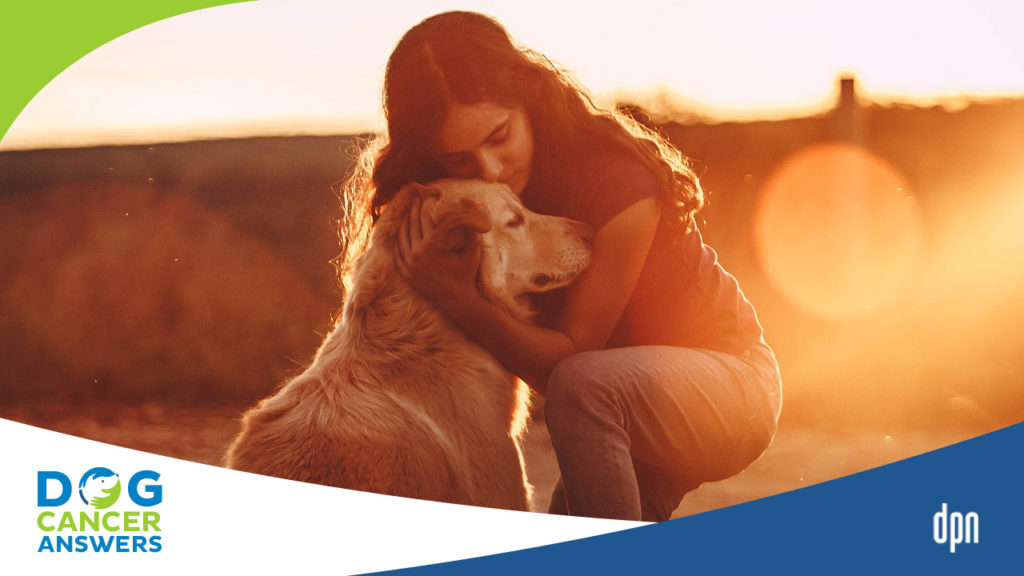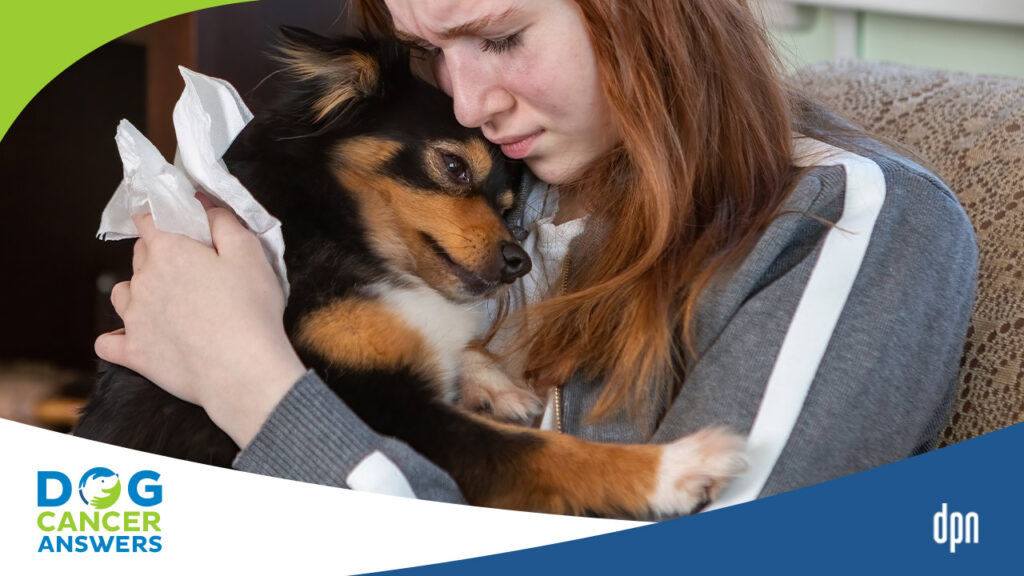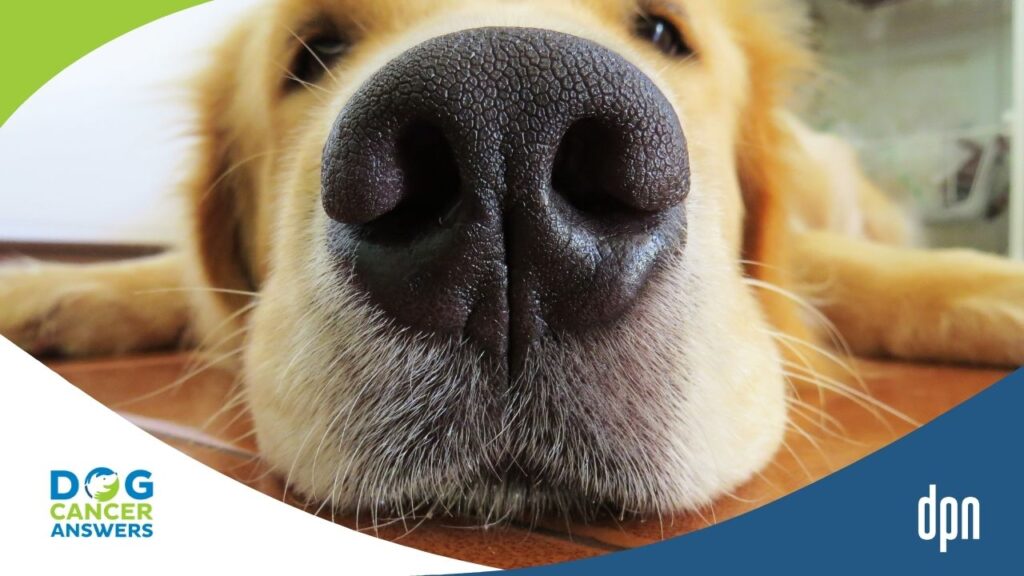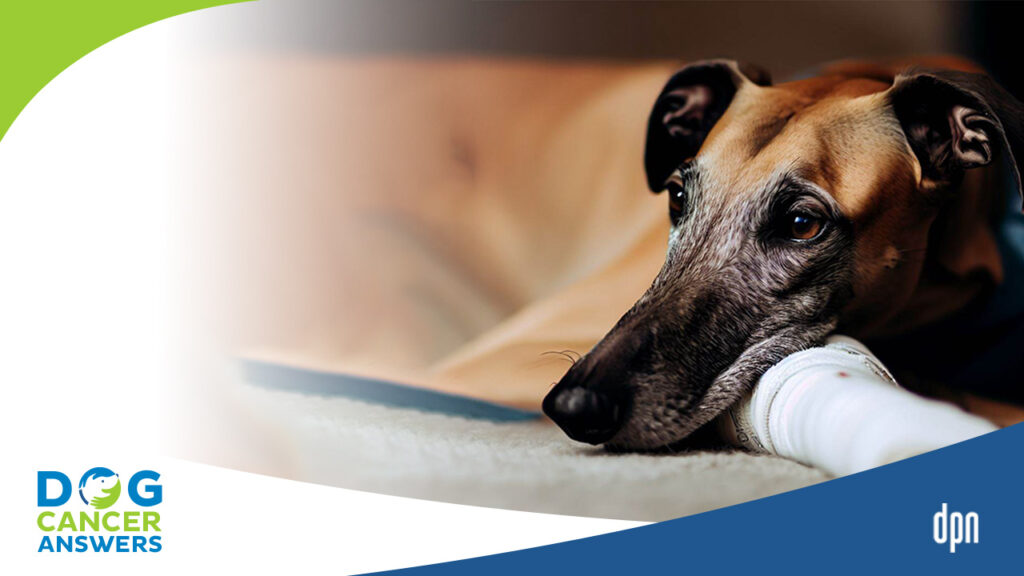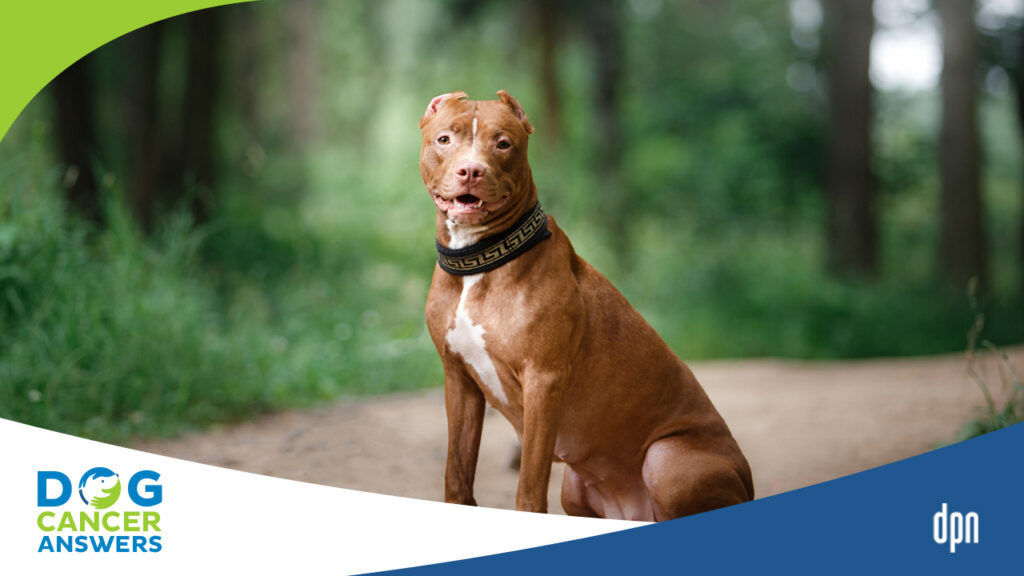EPISODE 146 | RELEASED December 20, 2021
Why Is My Dog Shaking? Should I Call My Vet? | Dr. Nancy Reese Deep Dive
Shaking and trembling is often not due to a health problem! Learn how to evaluate your dog and determine if she needs a vet visit.
SHOW NOTES
Shaking and trembling in dogs have many causes… most of which have nothing to do with health! Some potential causes of shaking and trembling include cold, anxiety, pain, neurological disorders, some immune disorders and electrolyte imbalances.
Dr. Nancy Reese goes over how to figure out what is causing your dog to shake and quiver, and when to seek veterinary attention.
[00:00:00] >> James Jacobson: Today’s show is brought to you by the bestselling book, the Dog Cancer Survival Guide: Full Spectrum Treatments to Optimize Your Dog’s Life Quality and Longevity. It’s available everywhere books are sold in both paperback and digital editions and on the publisher’s website at DogCancerBook.com. Use coupon code PODCAST on that website to get 10% off the Dog Cancer Survival Guide today.
[00:00:30] >> Dr. Nancy Reese: The shaking. That’s a very frustrating symptom to try to deal with, because it could be pain, it could be anxiety, it could be cold. It could be a neurologic thing. There’s just so many – the list is pretty long and it’s very difficult to parse out which of those it is.
[00:00:47] >> Announcer: Welcome to Dog Cancer Answers, where we help you help your dog with cancer.
Here’s your host, James Jacobson.
[00:00:55] >> James Jacobson: Hello friend. Today we are going to talk with our chief veterinary editor, Dr. Nancy Reese, about what it means when your dog is shaking or is trembling, and whether you should call your vet if your dog gets the shakes. Dr. Nancy Reese has been a practicing veterinarian for over 30 years now, and she also has a Master’s degree in Preventative Veterinary Medicine and a PhD in Epidemiology. Dr. Nancy Reese, thank you so much for being with us today.
[00:01:27] >> Dr. Nancy Reese: Oh thanks again. It’s a pleasure to be back.
[00:01:29] >> James Jacobson: Now, my producer says this show is especially for those of us who have little dogs like I do. I have a Maltese, and she sometimes shakes and trembles, and there’s just no specific symptoms that I can say other than she’s just like shaking. And it makes me go, whoa, is there something going on? So, Dr. Nancy, how serious is this? Is is she in pain?
[00:01:52] >> Dr. Nancy Reese: This is one of those, symptoms, I guess you’d call it, where I really wish we could be Dr. Doolittle and talk to the animals because the number of different causes, including "it’s absolutely nothing" – it’s a long list. And so it’s very frustrating to have to deal with the, the shaking dog, because you can look at them sideways and they might start to shake, you know, you don’t know what they’re doing when you’re not looking at them, so is it something that is influenced by the fact that you’re looking at them, or is it something truly wrong with them? And that, the shaking, that’s a very frustrating symptom to try to deal with because it could be pain, it could be anxiety, it could be cold. It could be a neurologic thing. There’s just so many, the list is pretty long and it’s very difficult to parse out which of those it is.
[00:02:45] >> James Jacobson: I have figured out that at least oftentimes for my dog, the shaking comes when she smells something on the stove that could eventually trigger the smoke detector because she has some PTSD from a smoke detector.
[00:03:01] >> Dr. Nancy Reese: Right.
[00:03:01] >> James Jacobson: But I mean, that’s only because you know, I’m not Dr. Doolittle, but I talk to the dog, okay. But, you know, it’s just like, I’ve just watched her so much. But if you aren’t as connected, or if this starts all of a sudden, should you go see your veterinarian about this? Or when should you bring this to your vet?
[00:03:19] >> Dr. Nancy Reese: You pointed out one of the biggest things is if you know your dog, it’s a lot easier to tell whether it’s a significant thing or not.
For people that don’t pay attention to their animals, it’s hard to know. So somebody like you, and you said your dog was shaking differently, I would probably take that much more seriously than somebody else that their dog lives in the backyard and they occasionally walk by and it’s shaking. So certainly if there’s other symptoms that go with it, it would be a bigger concern. So, you know, if they’re looking at you and they they’ve got that pained expression, their eyes are a little bit either squinty or wider, or they’ve got a grimace on their face and they’re shaking, that goes along more with something that might be very painful. If you’re outside and it’s cold and you take the dog in and it’s not shaking anymore, well, you probably don’t need to worry about that.
[00:04:12] >> James Jacobson: Is it a way of processing? Is it just sort of a way that these smaller dogs process stimuli?
[00:04:18] >> Dr. Nancy Reese: Absolutely.
I think they are a lot more emotional than a big Lab. I mean, a Lab is going to be shaking because they’re wagging their tail so hard that their whole body shakes. But the little dogs, I think there’s often a lot more anxiety and they express it sometimes with the shaking.
But again, just looking at them sometimes, or the thought that something might occur later because X happened, might lead to more shaking, whereas the bigger dogs don’t tend to do that quite as much. The other bizarre thing, I guess it is, that there is something called Little White Shaker Dog Syndrome.
[00:04:52] >> James Jacobson: What?
[00:04:53] >> Dr. Nancy Reese: Yes. So um-
[00:04:54] >> James Jacobson: It’s actually a syndrome? You guys have that as a medical syndrome?
[00:04:57] >> Dr. Nancy Reese: It is a medical syndrome. They, they have a newer name for that, but that’s the way we used to be able to remember it is because it is a neurological condition of small white dogs, like uh, West Highland White Terriers, or Poodles, or Malteses, anything that was small and white, they would have uncontrollable tremors.
And it seems to be a, an immune system disorder. So auto immune suppressors often can be used as treatment, but the way we remembered it, it was always, you know, little white shaky dog. Other dogs can certainly get it, but it does tend to be a small dog disorder.
[00:05:29] >> James Jacobson: Does any chemotherapy treatment or regimen induce or is correlated with, with shaking and trembling?
[00:05:36] >> Dr. Nancy Reese: Well, that’s an interesting question. The only thing I could think of is a drug that makes an animal feel bad. So if they’re feeling a little bit nauseated, that might induce them to be a little more shaky or things, or if their electrolytes have become off because the animal’s vomiting or something like that secondary to the chemo, then you could have some tremoring types of things based on bad electrolyte disorders.
[00:06:00] >> James Jacobson: Dr. Nancy, let’s take a break right here, but when we come back, I want to talk to you about some of the anxiety products that you can use at home if your dog has the shakes. We’ll be right back.
We’re back with Dr. Nancy Reese. So if it’s sort of an anxiety thing and that’s why your dog is shaking, I guess there are all sorts of anxiety products that you can use at home, things like the Thunder Shirt and things like that.
[00:06:27] >> Dr. Nancy Reese: Right. Yeah, I really like the idea of the Thundershirts. I mean I have to admit that I thought, when I first saw those, I thought, oh, this is just kind of one of these strange ideas.
And then saw them actually work in, in a lot of animals and that, that close hugging feeling seems to really calm some animals down. So I’m, I’m a big fan of those now. Plus they probably provide a little bit of warmth too. So.
[00:06:50] >> James Jacobson: Uh, so they, yeah, if your dog is shaking ’cause it’s cold, then that thing would also warm it up.
I guess it’s the equivalent of the human weighted blankets that have become so popular over the last few years.
[00:06:59] >> Dr. Nancy Reese: Right. Right.
[00:07:00] >> James Jacobson: You want a heavy blanket? You want to be tucked in.
[00:07:02] >> Dr. Nancy Reese: Yes.
[00:07:03] >> James Jacobson: Anything else that you can do at home to minimize these white shaking syndrome dogs, or shaking in any dogs?.
[00:07:11] >> Dr. Nancy Reese: Yeah. You know, providing a nice warm anxiety-free environment and I, and you mentioned the smoke alarms earlier and that, I mean, that’s one of the things, ’cause sometimes it’s even, I don’t know if there’s a pre-warning that the dogs could hear before we could.
I remember I had a dog that, oh, I was so sad because I found her curled up in our cat’s litter box a couple of times. And I can look and see, she was obviously distressed about something, but I had no idea what it was. And it took several days before I started hearing the smoke alarm going off. And once I took that out, she stopped doing that and I felt so bad because I had no idea that she could tell this was happening when I couldn’t hear it. So smoke alarms is a biggie.
[00:07:54] >> James Jacobson: Or if you live in a neighborhood where there are other houses, it could be a couple of doors away. I – we’ve noticed that because again, this dog is very conditioned to hate smoke alarms, but she won’t go that way, she’ll walk around that house in a very large, to give it a lot of, because, oh my gosh, they have a smoke, and they’re like, oh wait, I do hear that. And also kids playing with aluminum baseball bats just, just hitting that ball with, and just something about that just triggers her. And the shaking just looks like ugh. But again, know your dog. Kind of get into the-
[00:08:25] >> Dr. Nancy Reese: absolutely.
[00:08:26] >> James Jacobson: -thinking of how does this dog think, and realize, hmm, maybe that’s it.
[00:08:30] >> Dr. Nancy Reese: Yeah.
[00:08:30] >> James Jacobson: Or don’t get a little white shaking dog.
[00:08:33] >> Dr. Nancy Reese: And try to pay attention to your environment. So again, I mention my rural area a lot. I mean we get people doing target practice with guns and both my last two dogs were petrified of the sound of gunfire. So it may not initiate that much of a response in me because I’ve become used to it, but the poor dogs, they would start shaking uncontrollably and it took a while to figure out, oh, there’s this outside stimulus that I’m not even paying attention to. So yes, definitely know your dog, look for signs that it’s more anxiety versus a physical disorder, they’re not, you know, vomiting or diarrhea and things like that.
[00:09:10] >> James Jacobson: And uh, Kanga also feels the same way about gunfire, but we don’t have live gunfire in our neighborhood, but it’s on the television. And, uh, that is just as triggering for the dog.
[00:09:19] >> Dr. Nancy Reese: Absolutely.
[00:09:20] >> James Jacobson: Especially with the big sound systems that we all have today. Well, Dr. Nancy, thank you. I guess this is not something to be gravely concerned about, but it’s another thing to reinforce that, know your dog.
[00:09:31] >> Dr. Nancy Reese: The other big thing is that some shaking can be a sign of neurologic conditions. So if there’s different positions that the shaking happens in, if they’re standing up and it happens, or if it’s only when they’re sleeping, you know, those types of tremors versus just trembling can be potentially more significant.
So again, if it’s something that you see your dog shake for a couple of minutes, and then it’s fine, I wouldn’t worry. But if this is something that is continuously going on or the animal’s shaking while it’s moving, or it’s shaking and it falls down – so there, there can be different degrees of shaking.
[00:10:10] >> James Jacobson: Wow. Okay. That’s good information. Dr. Nancy Reese, thank you so much for being with us.
[00:10:14] >> Dr. Nancy Reese: Thank you. Have a pleasant day.
[00:10:16] >> James Jacobson: And thank you, dear listener. I am so glad that you joined us today and hit that play button. I want to encourage you to check out the show notes in your podcast player for links and resources that are mentioned in today’s episode. And for even more information on caring for a dog with cancer, please visit our website at DogCancer.com. Also, if you are not already receiving our newsletter called Dog Cancer News, please subscribe to that. It is free. You can find that at DogCancerNews.com. The newsletter comes out three times a week, then the subscription, as I said is free, and you can cancel at any time.
And speaking of free, if you’re looking for a community of caring dog lovers who are going through the same process that you and your dog are, getting that community is priceless. And literally it is priceless because it is part of our Facebook support group. And you can join that by going to this URL, DogCancerSupport.com.
Again, all the links are in the show notes for today’s show, which you can find in your podcast app or on the website for this podcast at DogCancerAnswers.com. Well again, thank you so much for joining us. I’m James Jacobson. On behalf of all of us here at Dog Podcast Network, I want to wish you and your dog a very warm, Aloha.
[00:11:52] >> Announcer: Thank you for listening to Dog Cancer Answers. If you’d like to connect, please visit our website at DogCancerAnswers.com or call our Listener Line at (808) 868-3200. And here’s a friendly reminder that you probably already know: this podcast is provided for informational and educational purposes only.
It’s not meant to take the place of the advice you receive from your dog’s veterinarian. Only veterinarians who examine your dog can give you veterinary advice or diagnose your dog’s medical condition. Your reliance on the information you hear on this podcast is solely at your own risk. If your dog has a specific health problem, contact your veterinarian.
Also, please keep in mind that veterinary information can change rapidly. Therefore, some information may be out of date. Dog Cancer Answers is a presentation of Maui Media in association with Dog Podcast Network.
Hosted By
SUBSCRIBE ON YOUR FAVORITE PLATFORM
Topics
Editor's Picks
CATEGORY



